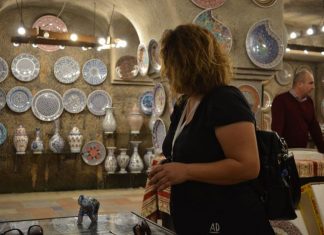As I did this there met us, herded together with goats, the so-called wild asses. But why, I ask, wild asses? Our tame ones at Cremona are the same. Their color, shape and ears are the same; they are equally melodious when they begin to bray; they resemble each other in size, have the same swiftness, and are equally pleasant food for wolves.
When I saw them I said to the Greek who was riding with me: “I never saw the like in Saxony.” ,If,” he said, ” your master shall be friendly to the holy emperor, he will give him many such; and it will be no little glory to him himself to possess what no one of his distinguished predecessors has ever seen.”
But believe me, my august masters, my brother and fellow bishop, master Antony, (of Brixen) can furnish ones that are not inferior, as is witnessed by the markets which are held at Cremona; and there they walk about not as wild asses but as tame ones. But when my escort bad announced the above words to Nicephorus, he sent me two goats, and gave me permission to go away. On the following day he himself started towards Syria.
Greeks and Saracens
But mark now why he led his army against the Assyrians. The Greeks and Saracens have books which they call the Visions of Daniel; I would call them Sibylline Books. In them is found written how many years each emperor shall live; what things, whether peace or war, are to happen during his reign; whether fortune is to be favorable to the Saracens, or the reverse.
And so it reads, that, in the time of this Nicephorus, the Assyrians will not be able to resist the Greeks, and that he, Nicephorus, will only live seven years; and that after his death an emperor shall arise worse than he-only I fear that none such can be found-and more unwarlike; in whose time the Assyrians shall so prevail, that they shall bring all the regions as far as Chalcedon, which is not far from Constantinople, under their sway. For both peoples have regard for their favorable seasons; and from one and the same cause the Greeks press on encouraged, and the Saracens, in despair, make no resistance; awaiting the time when they themselves may press on, and the Greeks, in turn, may not resist.
Read More about A Letter and a Paragraph part 8









